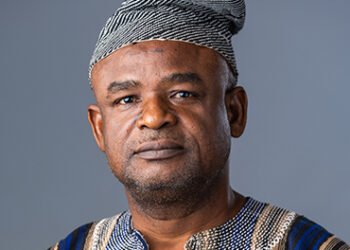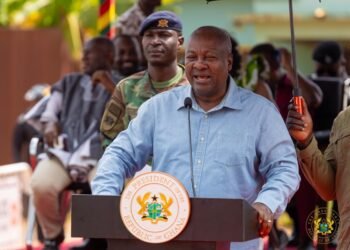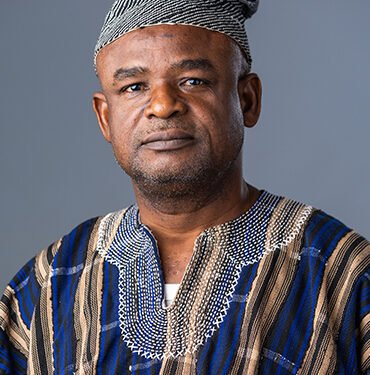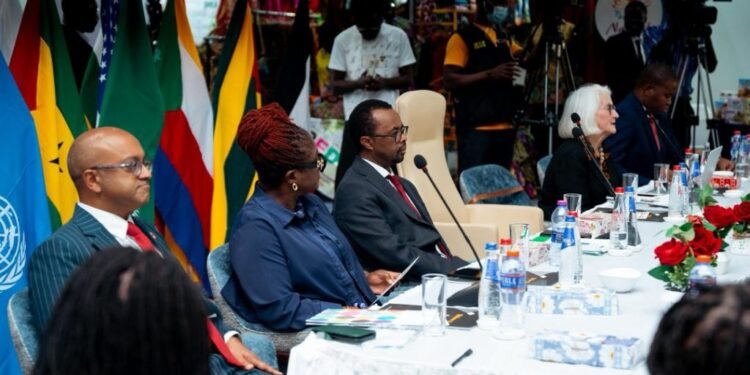The Executive Director for the Institute of Democratic Governance (IDEG) Dr. Emmanuel Akwetey has provided a sobering analysis following the NDC’s refusal to sign a peace pact in the upcoming 2024 elections.
Dr. Akwetey emphasized the evolution of electoral violence, the role of political parties, and the efforts to mitigate these threats through peace initiatives. Dr. Akwetey highlighted the critical need for stronger institutional responses and a collective commitment to upholding democratic principles.
Dr. Akwetey began by acknowledging the legitimacy of the concerns raised by political actors, particularly regarding the conditions necessary for signing peace pacts. Dr. Akwetey pointed out that these issues are crucial to ensuring that all parties are brought on board:
“When it raises preconditions for signing the peace pact the 4th time, it draws attention to issues that ought to be resolve and [ all sundry] need to get on board.”
Dr. Emmanuel Akwetey the Executive Director for the Institute of Democratic Governance (IDEG)
This indicates that the peace pact, introduced in 2012, remains a vital tool for addressing electoral disputes and violence.
Dr. Akwetey emphasized the recurring nature of these concerns, noting that they have been raised repeatedly since the peace pact’s inception.
Dr. Akwetey recalled that in 2020, both dominant political parties, the National Democratic Congress (NDC) and the New Patriotic Party (NPP), signed the pact, highlighting their commitment to peace.
However, Dr. Akwetey cautioned that as new issues emerge, it is likely that both parties will continue to raise grievances. “We should also anticipate that the counterpart party, the NPP, that’s in government now, would also raise issues.”
One of the central themes of Dr. Akwetey’s discourse is the escalating violence between the two dominant parties.
Dr. Akwetey noted that this violence has become more pronounced, particularly after each party completed two terms in power. “Violence in the election between the two parties we term as duopolies has been escalating.”
This observation reflects a growing concern about the potential for violence to undermine the credibility of elections and the broader democratic process.
Dr. Akwetey’s commentary underscored the limitations of law enforcement in addressing widespread violence. Dr. Akwetey cited comments made by retired COP Kofi Batek in January 2019. Batek had warned that the police would be unable to manage violence if it spread across the country. Dr. Akwetey reinforced this point, stating:
“They don’t have the numbers, [neither do] they have the equipment.”
Dr. Emmanuel Akwetey the Executive Director for the Institute of Democratic Governance (IDEG)
The maintenance of order during Elections
This lack of capacity raises serious concerns about the state’s ability to maintain order during elections. Dr. Akwetey goes on to trace the history of electoral violence in Ghana, particularly in by-elections, referencing incidents in Atiwa, Talensi, and Ayawaso West Wagon.
These events, Dr. Akwetey argued reveal a pattern of impunity, where perpetrators are neither arrested nor prosecuted, and victims do not receive adequate support.
“Under which of these two parties in government did the violence occur? And what was done about the violence?”
Dr. Emmanuel Akwetey the Executive Director for the Institute of Democratic Governance (IDEG)
Dr. Akwetey’s questions underscored the failure of the state to hold accountable those responsible for political violence.
Moreover, Dr. Akwetey highlighted the transformation of foot soldiers into vigilantes, armed groups often supported by wealthy individuals within political parties. Dr. Akwetey noted that this evolution began after the 2008 elections and continued to escalate, particularly after 2012.
This trend led to the enactment of the vigilante law in 2020, following the Ayawaso West Wagon incident. However, despite this legal framework. Dr. Akwetey pointed out that the law has not been effectively enforced, and the competition between the two parties has only intensified.
As the political landscape continues to evolve, Dr. Akwetey warned that the threat of violence remains a significant concern, particularly as the NPP approaches the end of its second term in office. Dr. Akwetey expressed concern about the worsening violence and called for a comprehensive approach to addressing these issues.
“The threat of violence is even getting worse and more serious. How do we deal with this issue? For the stability of our democracy and to move forward.”
Dr. Emmanuel Akwetey the Executive Director for the Institute of Democratic Governance (IDEG)
Dr. Akwetey emphasized the need for urgent and sustained efforts to safeguard Ghana’s democracy.
Meanwhile, the NDC has pointed to specific incidents, such as the failure to implement the recommendations of the Ayawaso West Wagon white paper and the lack of prosecutions for violence in Techiman South, as evidence of institutional failures.
Dr. Akwetey further highlighted the role of the courts in resolving electoral disputes, noting that the peace pact emphasizes the importance of seeking justice through legal means rather than resorting to violence.
Dr. Akwetey drew parallels with the U.S. case of Al Gore and George Bush Jr. where despite disputes over the election results, AI Gore chose to concede for the sake of national stability.
“For the stability and peace of our nation, I will move on, I will concede defeat.”
AI Gore 45th Vice Presidential of the United States
This comparison underscored the importance of prioritizing national peace over political ambitions.
Dr. Akwetey’s reflections highlighted the ongoing challenges of political violence in Ghana and the urgent need for stronger institutional responses and a collective commitment to upholding democratic principles.
Dr. Akwetey’s analysis serves as a reminder that the stability of Ghana’s democracy depends on the ability of its leaders and institutions to address these issues effectively.
READ ALSO: Wizkid Shares How He Discarded Football for Music























